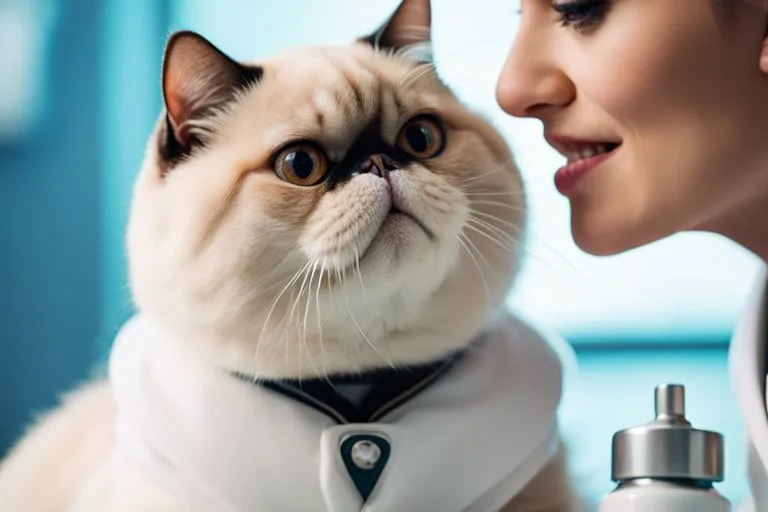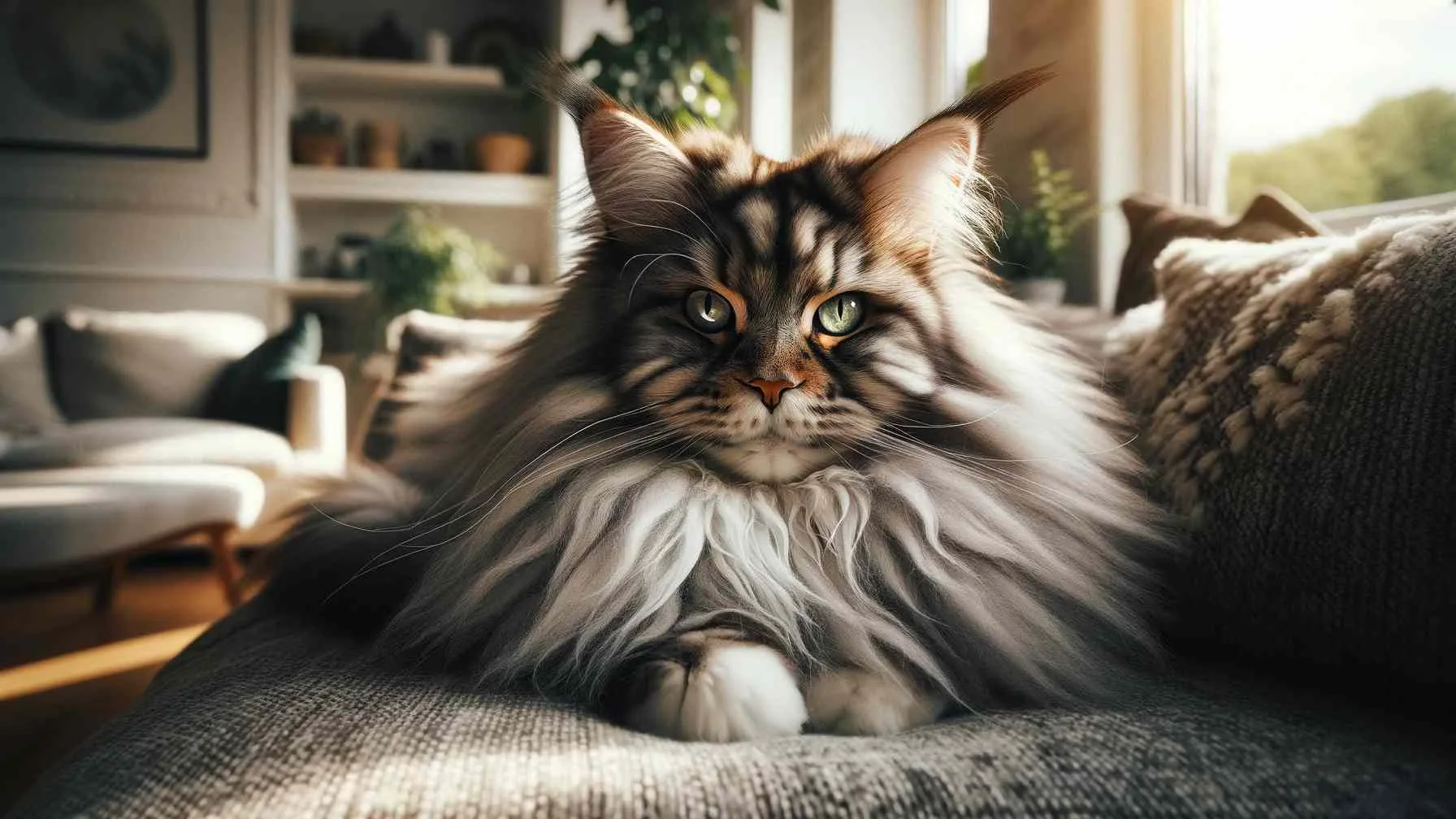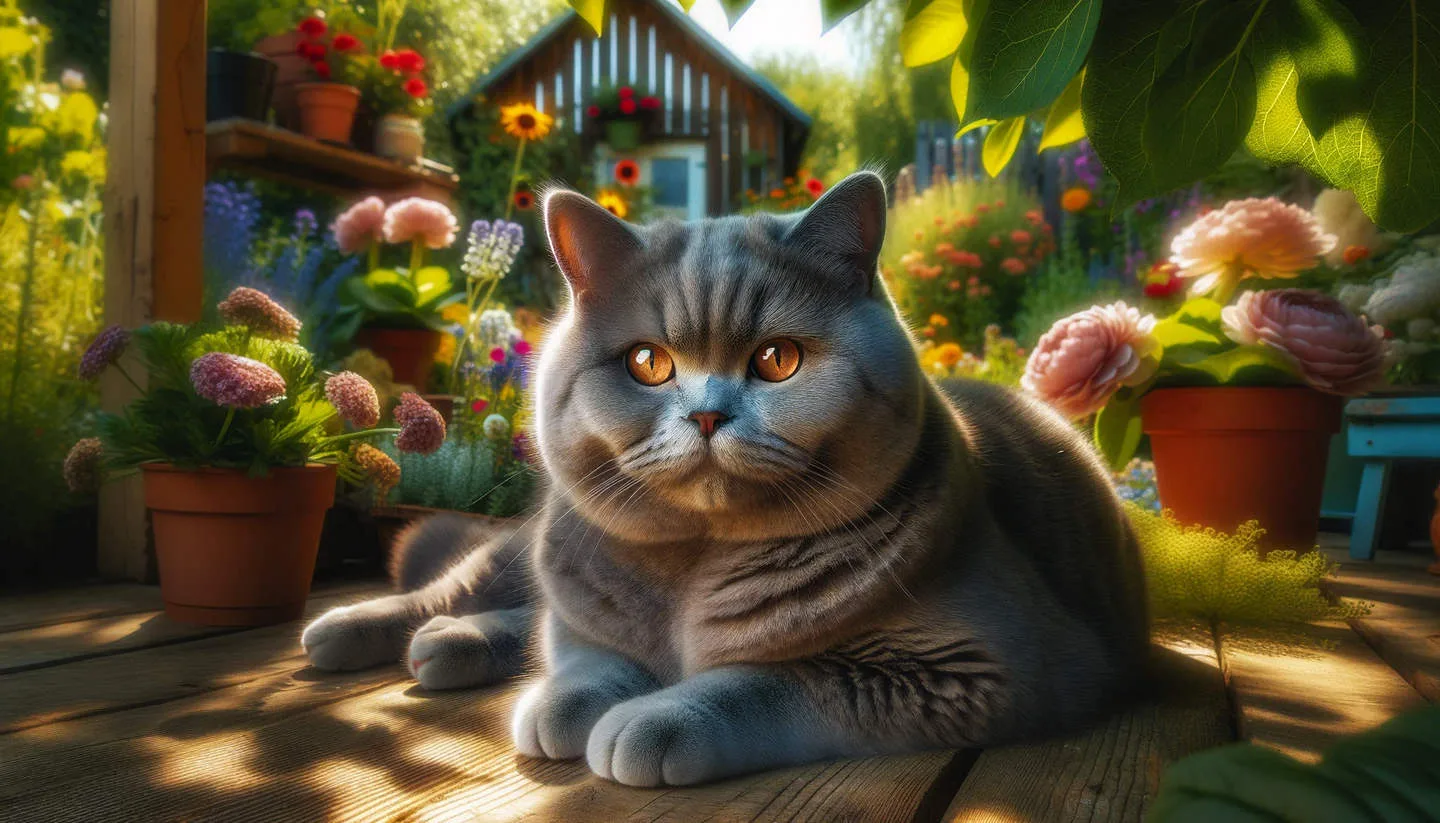Is your beloved Exotic Shorthair cat experiencing trouble swallowing or tongue difficulties? It’s important to be able to recognize the signs of these issues in order to provide timely care and prevent further complications. In this informative blog post, you will learn about the common symptoms of tongue difficulty swallowing in Exotic Shorthair cats, as well as potential causes and what you can do to help your feline companion.
Key Takeaways:
- Observation is key: Pay attention to any signs of difficulty swallowing such as excessive drooling, gagging, or coughing.
- Consult a veterinarian: If you notice any tongue difficulty swallowing in your exotic shorthair cat, it’s crucial to seek professional advice and diagnosis from a qualified veterinarian.
- Possible underlying causes: Tongue difficulty swallowing in exotic shorthair cats may be a symptom of various health issues such as oral infections, dental problems, or neurological disorders.
Understanding the Exotic Shorthair Breed
Clearly, understanding the unique characteristics of the Exotic Shorthair breed is essential when it comes to recognizing potential health concerns, including difficulty swallowing. This breed shares many traits with its parent breed, the Persian, but has a shorter coat, making it easier to maintain. Exotic Shorthairs are known for their gentle and placid demeanor, making them wonderful companions for you and your family. However, their distinctive features also come with specific health considerations that you should be aware of.
General Health Concerns
One of the most important general health concerns to be aware of in Exotic Shorthair cats is their susceptibility to respiratory issues due to their flat faces. This can lead to conditions such as brachycephalic respiratory syndrome, which can impact their breathing and make it more difficult for them to swallow properly. Additionally, this breed is prone to dental issues, which can also affect their ability to eat and swallow comfortably. Regular dental check-ups and monitoring of their breathing and swallowing patterns are crucial for maintaining their overall health.
Unique Anatomical Features
The unique anatomical features of Exotic Shorthair cats, such as their flat faces and large, round eyes, contribute to their adorable appearance but also present specific challenges. The shortened muzzle can lead to a condition known as brachycephalic airway syndrome, which can make breathing and swallowing more difficult. Similarly, their large, expressive eyes can be prone to issues such as excessive tearing, which may affect their ability to swallow comfortably. Understanding these unique anatomical features can help you recognize potential difficulties with swallowing in your Exotic Shorthair cat and take appropriate measures to address them.
Signs and Symptoms of Tongue Difficulty Swallowing
Now, recognizing tongue difficulty swallowing in your exotic shorthair cat is essential for their well-being. Dysphagia, or difficulty swallowing, in cats can be caused by various conditions, including neurological disorders, inflammation, or obstructions in the mouth or throat. To properly assess your cat’s swallowing difficulties, it’s crucial to be aware of the signs and symptoms to watch out for. For a comprehensive guide to dysphagia in cats, you can refer to this article on Dysphagia (Difficulty Swallowing) in Cats.
Behavioral Indicators
One of the behavioral indicators of tongue difficulty swallowing in cats is excessive drooling or drooling with a foul odor. You may also notice your cat making repeated attempts to swallow or experiencing discomfort while eating. Additionally, your cat might display avoidance of food and water or show signs of distress, such as pawing at the mouth or refusing to open the mouth. If you notice these behavioral changes in your exotic shorthair cat, it’s important to seek prompt veterinary attention to address the underlying issue. Ignoring these signs could lead to further complications and discomfort for your pet.
Physical Manifestations
In addition to behavioral changes, physical manifestations of tongue difficulty swallowing in exotic shorthair cats can include regurgitation, coughing, gagging, or even choking during mealtime. You may also observe your cat having difficulty in effectively licking their lips or keeping their mouth clean. Furthermore, abnormalities in the mouth, such as lesions, inflammation, or a change in the tongue’s appearance, can be indicative of underlying swallowing difficulties. If you notice any of these physical symptoms, it’s crucial to have your cat evaluated by a veterinarian as soon as possible to determine the cause and initiate appropriate treatment.
Diagnosis and Treatment Options
Despite your best efforts, your Exotic Shorthair cat may still experience difficulty swallowing. It is important to seek professional help to accurately diagnose the underlying cause and determine the best course of treatment. According to Catster, difficulty swallowing is one of the common health problems in Exotic Shorthair cats that require veterinary attention.
Professional Evaluation and Diagnosis
When you notice your Exotic Shorthair cat having trouble swallowing, it is crucial to take them to a veterinarian for a thorough evaluation. The vet will conduct a physical examination and may also recommend diagnostic tests such as X-rays, swallow studies, and endoscopy. These tests can help identify any structural abnormalities or underlying medical conditions that may be causing the swallowing difficulty. It is important to follow the vet’s recommendations and provide them with as much information as possible about your cat’s symptoms.
Available Treatments and Interventions
Once a diagnosis has been made, the vet will discuss the available treatment options for your Exotic Shorthair cat. The specific treatment will depend on the underlying cause of the swallowing difficulty. This may include medication, dietary changes, or surgical intervention. Your vet will provide you with a recommended treatment plan and will guide you through the process. It’s important to follow their instructions carefully and be vigilant in monitoring your cat’s progress. In some cases, the swallowing difficulty may be managed with ongoing care and monitoring, while in others, more aggressive treatment may be necessary to improve your cat’s quality of life.
Preventive Measures and Daily Care
After recognizing signs of tongue difficulty swallowing in your Exotic Shorthair cat, it’s important to take preventive measures and provide daily care to help manage the condition. It’s crucial to consult with a veterinarian to understand the underlying cause and develop a suitable management plan. You can also learn more about the symptoms and causes of difficulty swallowing in cats here.
Diet and Nutrition Considerations
When it comes to managing tongue difficulty swallowing in your Exotic Shorthair cat, paying attention to their diet and nutrition is essential. Ensure that your cat’s food is soft and easily digestible to minimize any discomfort during swallowing. Consider feeding them smaller, more frequent meals to prevent any potential choking hazards. It’s also important to monitor your cat’s water intake and ensure they have easy access to fresh water at all times. Additionally, your veterinarian may recommend specific dietary modifications to support your cat’s overall health and well-being.
Regular Health Check-ups and Monitoring
Regular health check-ups with your veterinarian are crucial for monitoring your Exotic Shorthair cat’s condition and addressing any changes in their swallowing difficulties. During these check-ups, your veterinarian can assess your cat’s overall health, conduct necessary examinations, and make any adjustments to their treatment plan. You should also monitor your cat’s condition closely at home and promptly report any new or worsening symptoms to your veterinarian. By staying proactive and maintaining regular veterinary care, you can ensure that your cat receives the necessary support for their tongue difficulty swallowing.
To Wrap Up
If you notice any signs of difficulty swallowing in your Exotic Shorthair cat, such as excessive drooling, gagging, or regurgitation, it is important to seek veterinary attention promptly. These symptoms could be indicative of a serious health issue that requires immediate treatment. As a responsible pet owner, it’s your duty to monitor your cat’s eating and swallowing habits and to act quickly if any concerning changes are observed. By being proactive and observant, you can help ensure the health and well-being of your furry friend.
FAQ
Q: What are some signs that my Exotic Shorthair cat is experiencing difficulty swallowing?
A: Signs of difficulty swallowing in Exotic Shorthair cats may include excessive drooling, unexplained weight loss, gagging or coughing while eating, and frequent attempts to swallow without success.
Q: What are some common causes of tongue and swallowing difficulties in Exotic Shorthair cats?
A: Common causes can include oral infections, dental problems, throat inflammation, nerve damage, or tumors in the mouth or throat.
Q: How can I help my Exotic Shorthair cat if I suspect they are having difficulty swallowing?
A: If you suspect your cat is having trouble swallowing, it’s important to take them to a veterinarian for a thorough examination. Your vet will be able to diagnose the issue and recommend a treatment plan.
Q: Is there anything I can do at home to help my cat with swallowing difficulties?
A: It’s important to follow your vet’s recommendations for treatment. In some cases, you may need to adjust your cat’s diet to softer foods or special prescription diets. Additionally, keeping your cat’s mouth and teeth clean can help prevent oral infections that may contribute to swallowing difficulties.
Q: Can swallowing difficulties in Exotic Shorthair cats be serious?
A: Yes, swallowing difficulties can be a sign of a serious underlying health issue. It’s important to seek veterinary care as soon as you notice any signs of trouble swallowing in your cat.



